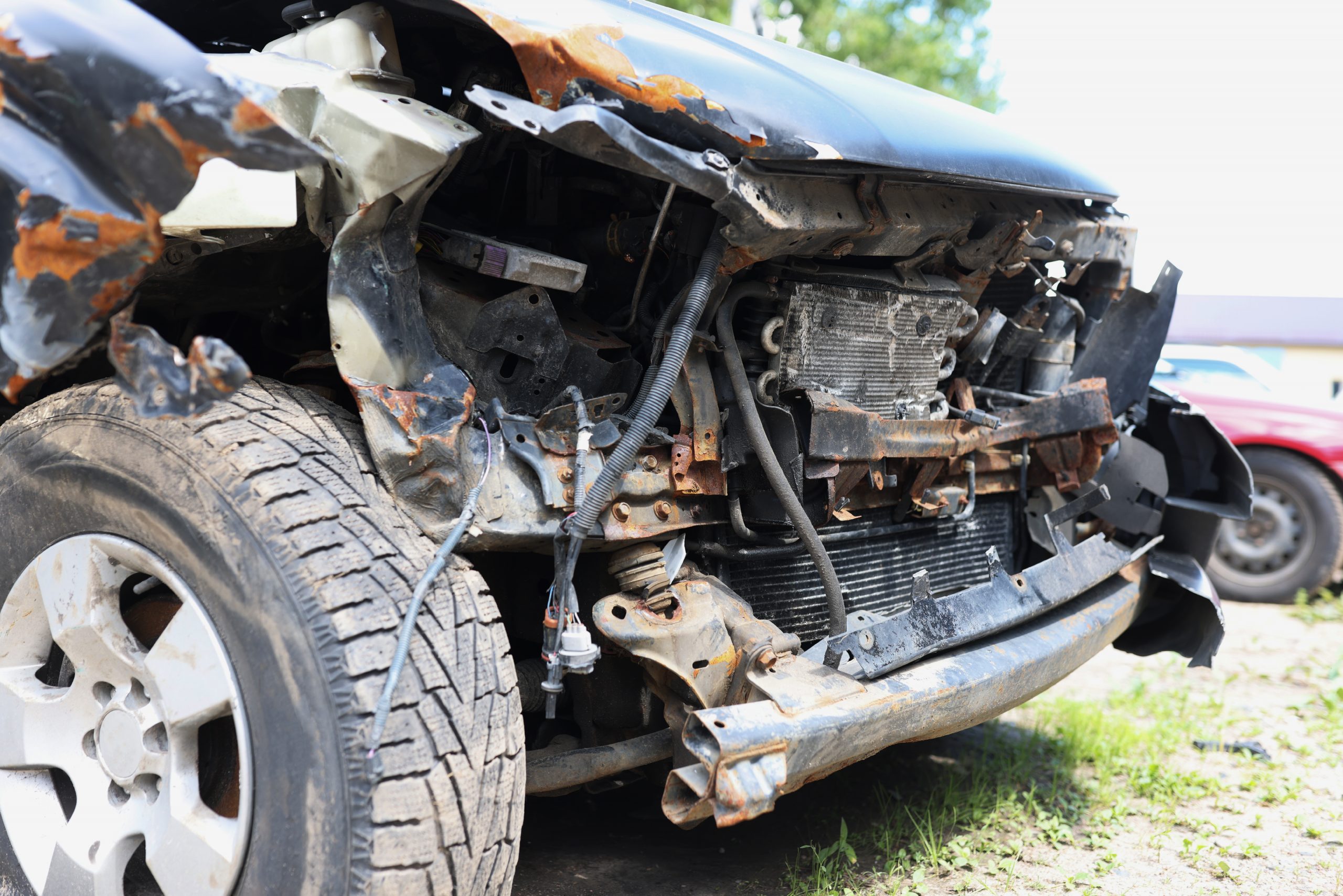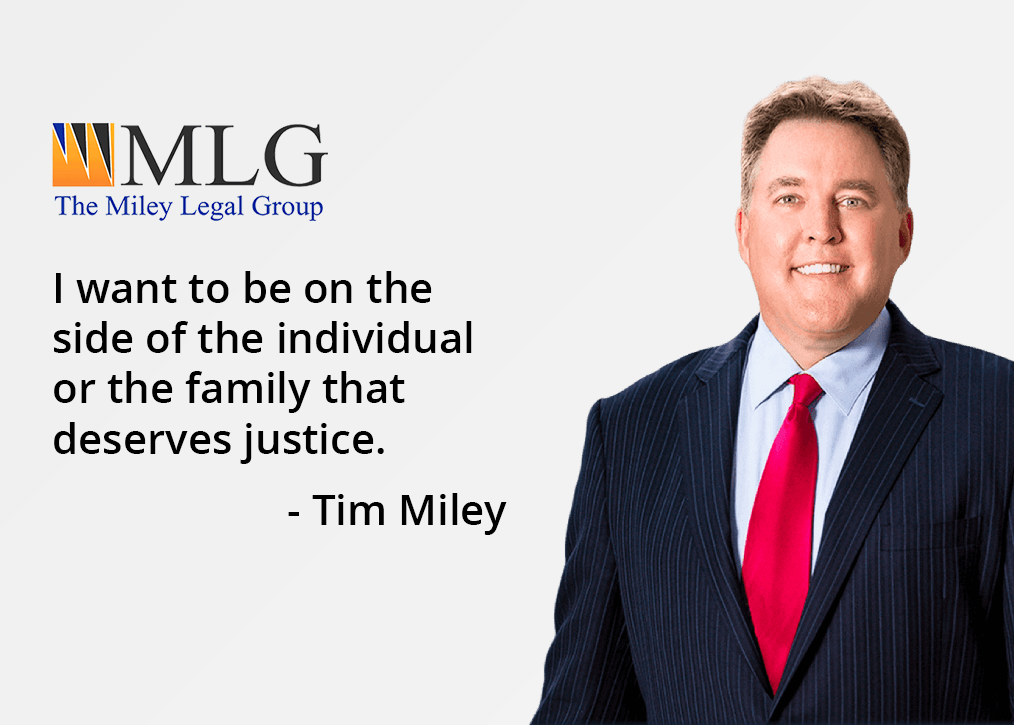
The 10 Most Common Car Accident Injury Symptoms
The most common car accident injury symptoms include dizziness, headaches, and stiffness, and pain in the neck, back, shoulders, and abdomen. Some injury symptoms develop immediately after a car crash, where others take days or weeks to appear. A doctor should examine each symptom.
Always err on the side of caution after a car accident and visit a medical professional for all injury symptoms, no matter how small. Seek immediate medical attention if you begin to feel pain or tenderness in an unusual area or experience unexpected personality changes. Even the slightest changes in how you feel or function can indicate a much more severe injury.
If you believe you’ve been injured in a car accident, medical care can be the difference between piles of medical bills from chronic pain and the path to a settlement for injury treatment. Learn more about the 10 most common car accident injuries symptoms and how a team of medical experts and a personal injury attorney can help on your path to recovery.
First, Keep an Eye Out for Delayed Injury Symptoms and Pain
There’s a common misconception that car accident injury symptoms appear automatically at the scene of a crash. While that might be true for an injury like a broken bone or open wound, most car accident injury symptoms develop in the hours after the accident. Symptoms that take 24 to 48 hours or more to develop are called delayed injury symptoms.
Everything from stress and adrenaline to swelling at the injury site can influence how long it takes for injury symptoms to develop. So, don’t dismiss the headaches or body aches you feel two or three days after a crash. It is also wise to visit a doctor even if you don’t feel symptoms within 48 hours. A doctor can run diagnostic tests to locate any injuries that have not shown symptoms yet.
A healthcare provider can order a medical imaging test to diagnose the injuries you can’t see with the naked eye, like a traumatic brain injury or muscle strain. Tests like an X-ray, MRI, or CT scans can also protect your right to fair compensation if you move forward with a car accident claim. Diagnostic tests are solid evidence to prove the severity of your car accident injuries.
Take a look at the 10 most common car accident injury symptoms, both instant and delayed, that require medical care.
1. Dizziness
Dizziness is by far the most common injury symptom among motor vehicle accidents. The shock of the incident often makes accident victims feel disorientated, lightheaded, or unbalanced. If you feel like your surroundings are moving around you or that you might faint, seek medical care.
Dizziness may be a symptom of a serious head injury, like a traumatic brain injury (TBI) or concussion. If you’re also experiencing nausea, vomiting, blurred vision, or difficulty concentrating, visit a doctor for a neurological examination.

2. Headaches
Headaches after a car accident may be another sign of a head injury. During a crash, your head can collide with other structures inside of your vehicle, especially a side window or steering wheel. The force of this impact can bruise sensitive brain tissue and cause brain injuries.
Without medical intervention, traumatic brain injuries can cause internal bleeding or blood clots. Visit a medical professional as soon as you begin to experience headaches that last longer than a few hours or reoccur for days at a time, especially if you’re also experiencing fatigue or brain fog.
3. Neck Pain
The rapid back and forth motion of a car crash is known to cause neck pain in accident victims. Neck pain often develops at the base of the skull and the tops of the shoulders. In most cases, accident victims with neck pain also experience neck stiffness or limited range of motion.
Severe neck pain after a car accident may be a sign of a whiplash injury. A whiplash injury occurs when the soft tissue of the neck, including muscles and ligaments, stretches and tears. Other whiplash symptoms include pain in the shoulder, dizziness, difficulty focusing, and headache.
4. Shoulder Pain
Seatbelts rest across the shoulder, so there is a chance that you can develop shoulder pain after a crash, especially one that occurred at high speeds. Pain that radiates from the shoulder down the arm might be a sign of a torn rotator cuff, which will require medical intervention.
Shoulder pain is also a common whiplash symptom. Shoulder pain accompanied by neck pain, dizziness, and headache might be a sign of a whiplash injury. Medical imaging can help determine where the pain is stemming from and how to treat it best.
5. Wrist Pain
There are several causes of wrist pain after a car accident, and most of them are quite common. For instance, many accident victims develop wrist pain from holding their hands out in front of their face before an airbag deploys. The force of the airbag can shatter one or several wrist bones.
Many accident victims also tightly grip the steering wheel or dashboard before a crash. The tighter the grasp at the moment of impact, the more damage the impact will cause like tearing sensitive tissues in the wrist.

6. Back Pain
Back pain is a prevalent symptom—especially since your back is made up of so many moving parts. There are soft tissues like tendons and spinal discs, hard bone and cartilage, and flexible joints that keep your back in one piece. All of these structures ultimately protect the spinal cord, which controls movement throughout the body.
A car accident can cause minor and major back pain symptoms. A herniated disc in the lower back can cause pain, inflammation, and stiffness. A broken spinal bone (vertebrae) in the upper back can cause numbness and tingling and even threaten the safety of the spinal cord.
Visit a doctor if you have any pain or sensitivity anywhere in your back. A spinal injury from a car accident is not only incredibly painful but also substantially expensive—two things you can try to minimize with immediate medical treatment.
7. Numbness
After a motor vehicle accident, numbness may have several causes, and most have to do with your nerves. Nerves are small fibers that send messages between the brain, spinal cord, and rest of the body. When another structure in the body compresses a nerve, it can cause numbness.
A compressed nerve is more commonly known as a pinched nerve. This accident injury can be caused by a swollen or herniated disc that presses on the nerve root. Other symptoms of a pinched nerve include burning, tingling, or shooting pain.
Do not write off numbness as a simple injury symptom. If you begin to experience numbness to the point where you can no longer move or feel your arms or legs, seek medical attention as soon as possible. Numbness and paralysis are symptoms of spinal cord injuries.
8. Stiffness or Swelling
Stiffness is often a result of swelling from a soft tissue injury. Though it can be quite painful, swelling is a sign that your immune system is reacting to an injury and actively trying to repair the damage. If an area is especially inflamed, it’s best to visit a doctor to check it out properly.
Depending on the area, stiffness and swelling may indicate a muscle injury like a strain. Tenderness and bruises might indicate a ligament sprain. Both strains and sprains can result in recurring pain or inflammation if not treated properly after a car accident.
9. Abdominal Pain
Abdominal pain after a car accident should never be taken lightly. If your torso slammed against the steering wheel or dashboard during a crash, it might have also damaged crucial internal organs. Organs like the liver, kidneys, and spleen may bruise or rupture in the days following the crash.
Common symptoms of organ damage include nausea, vomiting, stomach cramps, and fever. If you have bruises on your stomach and feel tenderness when touching the area, visit a doctor for testing. Swift medical intervention can help prevent further damage, like internal bleeding.
10. Personality and Behavior Changes
Many accident victims become so focused on their physical injury symptoms that they forget to monitor any personality or behavior changes. These cognitive symptoms are very common after a traumatic crash, especially if you’ve suffered a type of head injury as well.
Personality changes after a crash often include frequent mood swings, depression, and anxiety. Severe crashes may also trigger post-traumatic stress disorder (PTSD), which may cause flashbacks, nightmares, and emotional detachment.
Behavior changes after a crash often include constant fatigue, trouble sleeping, and changes in appetite. These changes can impact a victim’s road to recovery and be incredibly distressing. Though not a physical injury, personality and behavior changes can be included in a pain and suffering claim.

Contact the Miley Legal Group for Help if You’ve Been Injured
The repercussions of a car accident can be incredibly painful and seem to drag on forever. If dealing with car accident injury symptoms isn’t troubling enough, crash injuries often require weeks or months of treatment to alleviate pain. Some accident victims will struggle with pain indefinitely.
The best way to protect your health and wellbeing after a motor vehicle accident is to seek medical care. A physician can diagnose and document your injury and prescribe an effective treatment plan. Then, a car accident attorney can help you build a personal injury claim to seek compensation for medical expenses like physical therapy or surgery.
Do not hesitate to investigate your common car accident injury symptoms. If you’re experiencing any of the above 10 symptoms, visit a doctor immediately. Once you begin your road to recovery, contact the attorneys at The Miley Legal Group. We will fight night and day for your right to fair compensation after a car accident.

